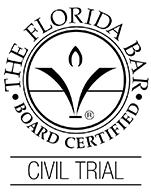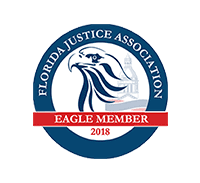Generally speaking, workers’ compensation cannot be backdated, as you may not receive compensation for injuries that took place before an insurance policy kicked in. However, you can receive compensation for lost wages after your workers’ benefits start, provided you meet certain timing criteria.
Backdated Insurance Claims
The issue of backdated insurance claims was recently raised in Florida’s First District Court of Appeal.
In the court case, an employee of a construction company was injured by heavy machinery. Afterward, his employer contacted its insurance company to secure coverage. However, the insurer hadn’t yet secured a workers’ compensation policy, so it signed a new policy after the injury took place. The policy provider refused to provide benefits to the injured employee.
Florida’s First District Court of Appeal upheld the policy provider’s decision to withhold benefits because:
- They weren’t made aware of the injury.
- Their coverage kicked in after the employee was injured.
This court case sets the following precedent – a workers’ compensation insurer isn’t responsible for injuries that took place before their coverage kicked in.
Don’t fret if you find all this confusing. Workers’ compensation coverage is a complicated area of law. If you have questions about the specifics of your workers’ compensation claim, a law firm that manages such cases can provide answers.
What does Workers’ Compensation Cover?
According to the Florida Department of Financial Services, workers’ compensation can cover the following damages:
- Medical care costs: This could cover your expenses related to doctor’s appointments, prescription medications, medical tests, physical therapy, attendant care, prostheses, hospitalization, and traveling to and from the doctor.
- Lost wages: Depending on how injured you were, you may qualify to seek benefits for temporary total disability, temporary partial disability, and permanent total disability.
- Job training: If your injury left you unable to work your previous job, you may qualify for vocational rehabilitation. This program can teach you skills and support you as you seek a new form of employment.
- Death benefits compensation: If you lost a loved one in a workplace accident, you may be eligible for death benefits.
Workers’ Compensation Claims Deadlines
There are two deadlines to keep in mind if you were injured at work:
- You must notify your employer within 30 days of your injury.
- Your employer must notify their workers’ compensation insurer within seven days of receiving your notice.
If your employer refuses to notify the insurer, you have the right to notify them yourself.
What If My Employer Isn’t Cooperating During My Workers’ Compensation Claim?
If your workers’ compensation claim was denied or a disagreement related to a backdate arises, you can seek legal counsel. A Florida workers’ compensation lawyer can provide you with the following services:
- Estimate the value of your damages
- Manage communications with your employer and workers’ compensation insurer
- Investigate the details of your accident and gather evidence
- Act as your representative during hearings
- Answer questions about the claims process
- Negotiate to settle your workers’ compensation claim
Many law firms that take workers’ compensation claims work on a contingency-fee basis, meaning they don’t ask for any out-of-pocket, hourly, or upfront payments. Instead, they receive their fee from the financial outcome they obtain for you at the end of your case. They’ll even finance your case from start to finish, so partnering with them is risk-free.
In addition to hiring an attorney, you can receive assistance from your local employee assistance office (EAO).
Employer Workers’ Compensation Violations
According to the Florida Department of Financial Services, it is against the law for employers to:
- Discourage or threaten an employee trying to fail a workers’ compensation claim
- Deduct workers’ compensation premiums from an employee’s pay
- Not obtain required workers’ compensation coverage
- Misclassify employees as independent contractors
These violations are punishable by criminal charges.
Can I File a Lawsuit Against My Employer?
The state of Florida bars employees from suing their employers, as their workers’ compensation policy protects them from liability. However, there are workplace accidents that occur due to third-party negligence.
For example, the equipment manufacturer may be liable if you suffered an injury after using defective tools. In that case, you could file suit against them, and you must meet the two-year deadline that the state imposes on most personal injury cases, according to Florida Statutes § 95.11.
Do You Have Problems With Your Workers’ Compensation Claim? Ask Dave
Dave Dismuke leads our firm and has secured millions of dollars in compensation for our clients. We’re proud to represent those in need and can support you throughout your workers’ compensation claim. If you’re having a hard time accessing your workers’ compensation benefits and don’t know what to do next, just ask Dave.
Reach out to our offices for a free, no-obligation case evaluation today.


![cftla-member[2]](https://www.1800askdave.com/wp-content/uploads/2022/03/cftla-member2.png)
![cftla-member[3]](https://www.1800askdave.com/wp-content/uploads/2022/03/cftla-member3.png)










